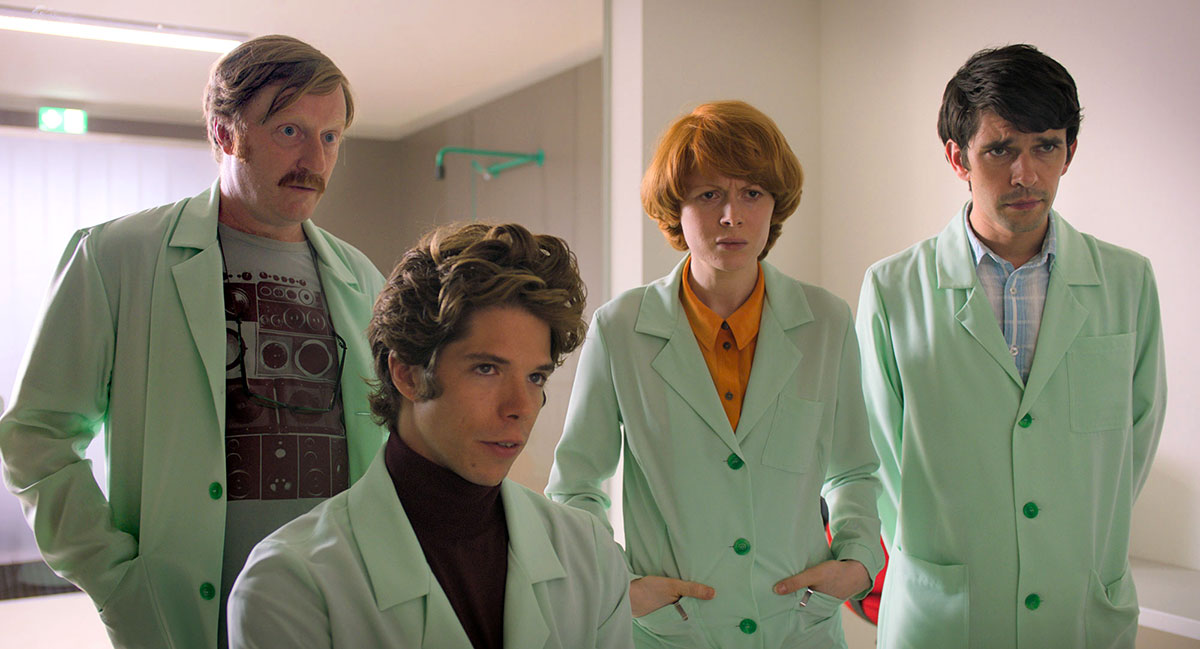A strange pinkish glow emanates from the greenhouse of Planthouse Biotechnologies, the laboratory where Alice Woodward (Emily Beecham), a dedicated geneticist, works. With the help of her partner Chris (Ben Whishaw), Alice cultivates a unique plant that allows its carer — so long as they water it regularly, keep it out of the cold, touch, and talk to it — to feel happy. But when Alice brings the plant home to show her son Joe (Kit Connor), for whom the plant is named, she begins to observe strange behavior from everyone who comes into contact with the plant, which seems to infect those in proximity by releasing an inhalable, dusty cloud of pollen with neurological consequences.
READ MORE: 2019 Cannes Film Festival: The 21 Most Anticipated Movies
As more and more people in her circles become infected, the underlying cause steadily erodes Alice’s grip on reality. Is her zany coworker with a history of mental illness Bella deluded, or perhaps onto something? And is Joe actually brainwashed by pollen, or merely encountering the stage of adolescence that distances children from their mothers, as Alice’s therapist (Lindsey Duncan) seems to think?
READ MORE: the 100 Most Anticipated Films Of 2019
Directed by Jessica Hausner, “Little Joe,” which premiered in competition at the Cannes Film Festival, locates itself at the intersection of “Rocky Horror Picture Show” and “Black Mirror.” Like all the best sci-fi, Hausner’s film diagnoses a societal anxiety, this time biological engineering with unintended consequences. It’s the “Invasion of the Body Snatchers” for the gene-obsessed generation, about whether happiness can be engineered, and about how the ones we think we know best can harbor their own unreachable private lives.
READ MORE: Summer Movie Preview: 35 Films You Shouldn’t Miss
Hausner sets a beautifully, selectively saturated scene, opting for bright sterility in the lab, with its artificial glow. The flowers themselves are unnaturally rendered in unsettling vermillion, fittingly in the type of Pantone shade that poisonous animals evolve to warn their predators of toxins. In parallel, certain characters stand out, like when Alice’s bright pink blouse is conspicuous in the beige-toned pub where she and Chris go on an uncomfortable date.
READ MORE: The 25 Best Films Of 2019 We’ve Already Seen
Her script, co-written with Géraldine Bajard, is just as spare: Characters deliver dialogue with cold, lobotomized detachment. “I can’t take care of everything around here,” Joe says ominously, when Alice asks about his once-beloved, now-defunct ant farm. Whishaw, in particular, revives the impassive delivery that characterized his performance in Yorgos Lanthimos’ “The Lobster” with disquieting effect. With its capable cast and sterile aesthetic in tow, “Little Joe” commands the bleak futurism of a “Black Mirror” episode, yet with slightly more muted drama, while composer Teiji Ito’s high-pitched synth score evokes a theremin-heavy, classic sci-fi soundscape.
Yet like its title character, “Little Joe” might not be so harmless, after all. Hausner’s film features an implicit commentary on antidepressants, which plays out insensitively and inaccurately. “Little Joe” also seems to suggest that workaholic mothers in male-dominated jobs cannot adequately care for their children, as Alice struggles to reckon with the question: “Which of your children will you choose?” In a social economy of care that forces women to pick between professionalism and domesticity, the “Can women have it all?” question is a valid one. But despite best intentions, Hausner’s interpretation tires a modern viewer: A female scientist must be suppressing a subconscious wish to jettison her child, in favor of her work, in order to have comprehensible character motives.
Surprisingly more compelling are the preternatural flowers themselves, which unfurl at the presence of human voices, hoping for future pathogenic hosts. The contours of their science are satisfyingly clear, thanks to Hausner’s thorough consultation with real-life neuroscientists. Still, certain narrative logistics remain slightly ill-defined: For instance, how is Bella more knowledgeable about Little Joe’s chemical and biological properties than the plant’s own designer? How does she seem to intuit what Little Joe is capable of from the outset?
Barring a few short-sighted misfires, “Little Joe” remains an arresting film with a novel imagination of a presently relevant issue. Nonetheless, it’s unlikely to garner any awards at the closing ceremony. (The ultimate survival of the fittest.) [B-]





